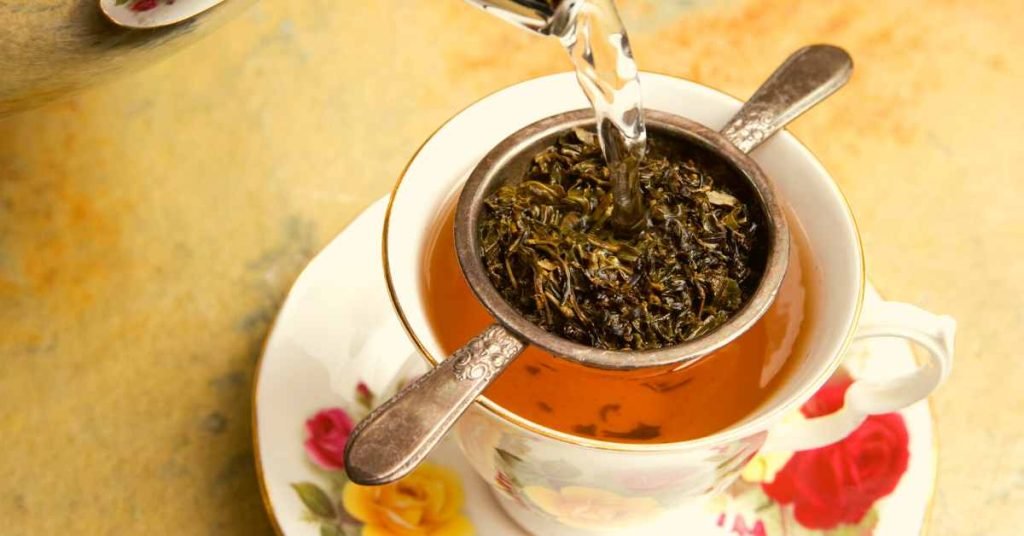Altitude sickness, also known as acute mountain sickness (AMS), is a condition that can affect individuals when they ascend to high altitudes too quickly.
Symptoms of altitude sickness can range from mild discomfort to severe, potentially life-threatening conditions.
While the best approach to avoiding altitude sickness is gradual acclimatization, there are various natural remedies that can help alleviate its symptoms.
In this article, we will explore the role of tea as a soothing solution for altitude sickness, offering insights into the benefits of different tea types, herbal infusions, and essential tips for managing this condition effectively.
Understanding Altitude Sickness

Before delving into the effectiveness of tea as a remedy, it’s essential to grasp the mechanics of altitude sickness.
When ascending to high altitudes, the air pressure and oxygen levels drop, causing your body to struggle with the reduced oxygen supply. This can lead to a range of symptoms, including:
- Headache
- Nausea and vomiting
- Fatigue
- Dizziness
- Shortness of breath
- Rapid heart rate
- Difficulty sleeping
- Loss of appetite
Altitude sickness can occur at altitudes above 8,000 feet (2,400 meters) and becomes more common as you ascend even higher.
Those who ascend rapidly without allowing their bodies to acclimatize are at a higher risk of experiencing altitude sickness.
While it’s essential to descend to lower altitudes if symptoms become severe, various natural remedies can help alleviate discomfort and support acclimatization.
Tea as a Remedy for Altitude Sickness

Tea has been cherished for centuries for its calming, medicinal, and soothing properties.
Different types of tea, such as black, green, white, and herbal infusions, offer unique benefits that can help mitigate altitude sickness symptoms.
- Green Tea: Packed with antioxidants, green tea helps improve blood circulation and increase oxygen delivery to tissues. The natural caffeine content in green tea can combat fatigue and boost alertness, which is especially helpful when dealing with altitude sickness.
- Ginger Tea: Ginger is known for its anti-nausea properties. Ginger tea can be particularly effective in alleviating nausea and vomiting, common symptoms of altitude sickness.
- Peppermint Tea: Peppermint tea is another excellent choice for easing nausea and gastrointestinal discomfort. Its refreshing flavor and digestive properties can help soothe your stomach while at high altitudes.
- Chamomile Tea: Chamomile tea is renowned for its relaxing and calming effects. It can aid in relieving headaches and sleep disturbances associated with altitude sickness, promoting a restful night’s sleep.
- Rhodiola Rosea Tea: Rhodiola rosea is an adaptogen herb that has shown promise in improving oxygen utilization and reducing altitude sickness symptoms. Brewing rhodiola tea can help combat fatigue, enhance stamina, and reduce symptoms like dizziness and shortness of breath.
Preparation and Consumption

To effectively use tea as a remedy for altitude sickness, it’s crucial to prepare and consume it properly. Here are some essential tips:
- Stay Hydrated: At higher altitudes, it’s essential to maintain proper hydration. Drink plenty of water alongside your tea to prevent dehydration, which can exacerbate altitude sickness symptoms.
- Gradual Acclimatization: Even though tea can offer relief from symptoms, it’s crucial to acclimatize gradually. Ascend to higher altitudes at a moderate pace to allow your body to adjust to the reduced oxygen levels.
- Limit Caffeine Intake: While green tea contains caffeine, consuming too much caffeine can exacerbate symptoms like insomnia and anxiety. Enjoy tea in moderation, and choose decaffeinated options if necessary.
- Herbal Blends: Consider creating herbal blends that combine ginger, chamomile, peppermint, and rhodiola to target multiple symptoms simultaneously. Experiment with different combinations to find what works best for you.
- Carry Tea Supplies: If you plan on being at high altitudes for an extended period, bring tea supplies such as a portable kettle, teabags, or loose tea leaves. This will ensure you have access to your remedy even in remote locations.
- Relaxation and Rest: Remember that the act of making and sipping tea can also be a calming ritual that aids in relaxation. Taking breaks, enjoying the scenery, and practicing deep breathing can further enhance your altitude sickness management strategy.
Precautions and Warnings
While tea can be a valuable remedy for altitude sickness, it’s important to exercise caution and consult with a healthcare professional if your symptoms worsen or persist. Additionally, consider the following precautions:
- Medications: If you’re taking any medications, discuss the use of herbal teas and their potential interactions with your healthcare provider.
- Allergies: Be aware of any allergies you may have to tea ingredients, especially herbal infusions. Avoid teas containing allergens that could worsen your symptoms.
- Preexisting Conditions: If you have underlying medical conditions, such as heart or respiratory issues, consult with your doctor before traveling to high altitudes.
- Altitude-Related Hazards: Remember that altitude sickness can be life-threatening, so it’s crucial to recognize severe symptoms and descend if necessary.

Final Word
Altitude sickness can put a damper on your high-altitude adventures, but natural remedies like tea can offer relief and comfort.
The soothing properties of different tea types and herbal infusions can help alleviate symptoms, making your experience at higher altitudes more enjoyable.
However, it’s essential to remember that while tea can assist in managing altitude sickness, gradual acclimatization remains the primary and most effective strategy for avoiding this condition.
Be prepared, stay hydrated, and enjoy the calming benefits of tea while you explore the breathtaking beauty of high-altitude destinations.
MEDICAL DISCLAIMER
Itsnevernotteatime.com cannot and does not contain medical/health advice. The medical/health information is provided for general and educational purposes only and is not a substitute for professional advice.



